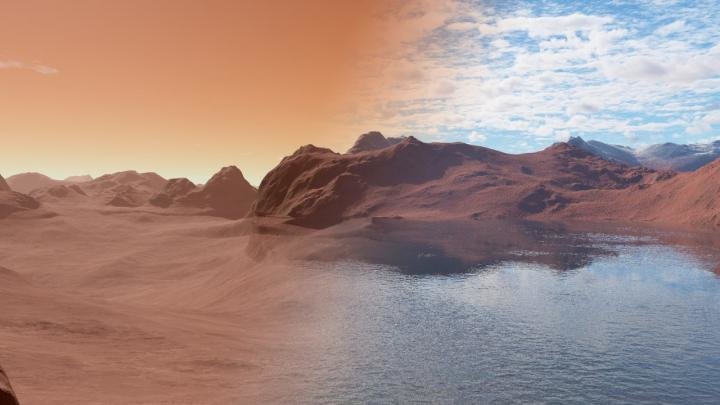When searching for life, scientists first look for an element key to sustaining it: fresh water. Although today's Martian surface is barren, frozen and inhabitable, a trail of evidence points to a once warmer, wetter planet, where water flowed freely. The conundrum of what happened to this water is long standing and unsolved. However, new research published in Nature suggests that this water is now locked in the Martian rocks.
Scientists at Oxford's Department of Earth Sciences, propose that the Martian surface reacted with the water and then absorbed it, increasing the rocks oxidation in the process, making the planet uninhabitable.
Previous research has suggested that the majority of the water was lost to space as a result of the collapse of the planet's magnetic field, when it was either swept away by high intensity solar winds or locked up as sub-surface ice. However, these theories do not explain where all of the water has gone.
'The Earth's current system of plate tectonics prevents drastic changes in surface water levels, with wet rocks efficiently dehydrating before they enter the Earth's relatively dry mantle. But neither early Earth nor Mars had this system of recycling water. On Mars, (water reacting with the freshly erupted lavas' that form its basaltic crust, resulted in a sponge-like effect. The planet's water then reacted with the rocks to form a variety of water bearing minerals. This water-rock reaction changed the rock mineralogy and caused the planetary surface to dry and become inhospitable to life.'
As to the question of why Earth has never experienced these changes, he said: 'Mars is much smaller than Earth, with a different temperature profile and higher iron content of its silicate mantle. These are only subtle distinctions but they cause significant effects that, over time, add up. They made the surface of Mars more prone to reaction with surface water and able to form minerals that contain water. Because of these factors the planet's geological chemistry naturally drags water down into the mantle, whereas on early Earth hydrated rocks tended to float until they dehydrate.'
